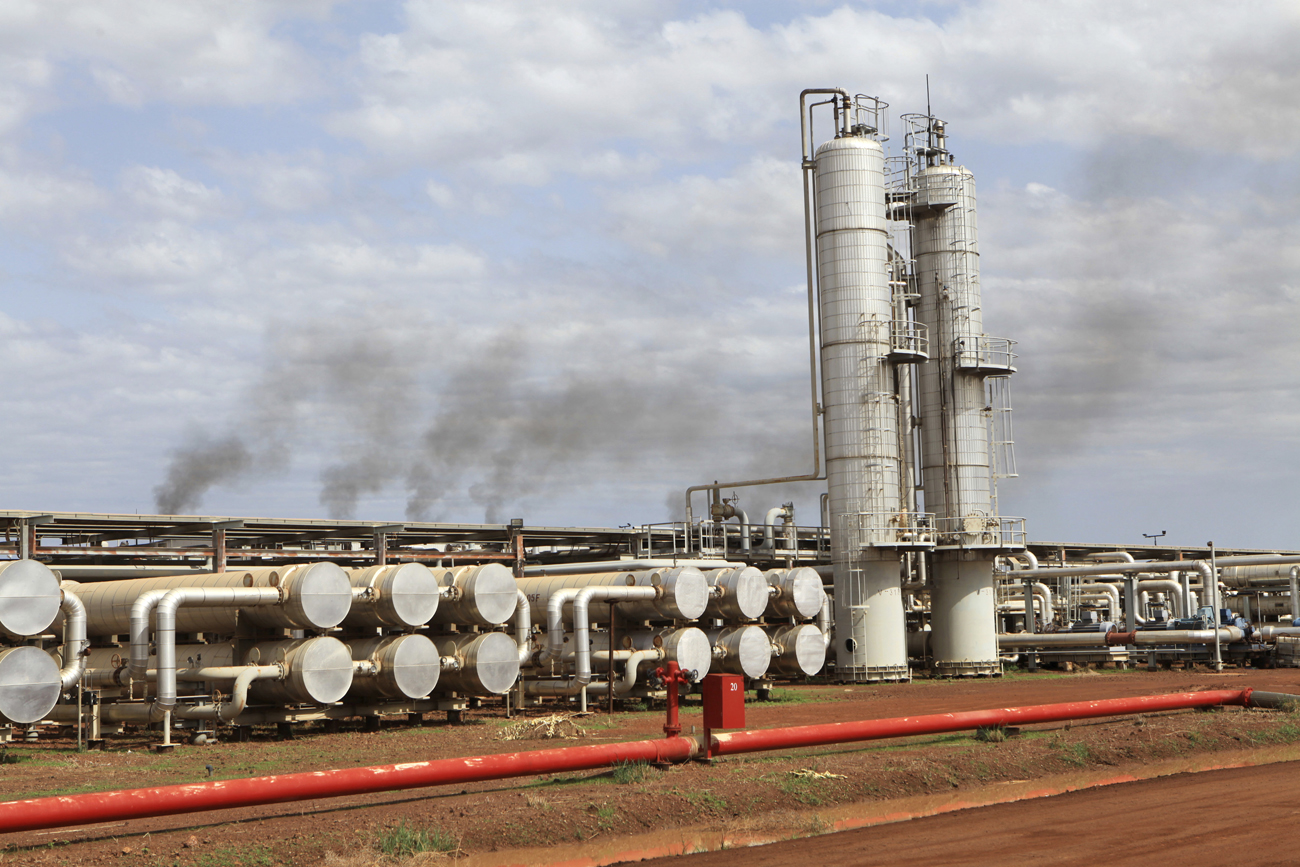There are many things that don’t make sense in the Sudans, but the latest development is most confusing. In case you missed it – and even the most engaged of us suffer Sudan fatigue at times, so frequent are the battles and bombings and so generally poor is the coverage – this is what happened.
Last week, troops from South Sudan attacked and occupied an oil field that is officially in Sudan proper, although the border demarcations are still contentious. This would not have been surprising coming from the north, whose frequent incursions into the south make a mockery of the new country’s hard-won sovereignty. But for Juba to take such a radical step – essentially an invasion, although the government claims it was in pre-emptive self defence as the oil field in question has been used as a staging ground for the Sudanese army to launch their attacks – is most out of character.
It gets stranger. Heglig oil field, now under southern control, supplied about half of Sudan’s remaining oil output. Given the parlous state of Khartoum’s finances, every barrel is vital, and Heglig should have been one of the best-guarded locations in the country. Maybe it was. Somehow, though, the southern army – which conventional wisdom believes is a rather ramshackle bunch of former militiamen – was able to seize control. How did this happen? Khartoum’s army is supposed to be its most valuable asset, the one thing on which the regime can rely. But in Heglig, it failed, and no one’s quite sure why. Even parliamentarians in Khartoum are confused: “How can Heglig fall so easily and in a matter of hours? It is a strategic area and if it fell after battles and martyrs [dying] it would have been more acceptable,” said MP Salwa Habani. “But to be surrendered to them in hours is unacceptable…”
The news came as a blow to the international community, more accustomed to seeing the south as the good guys and the north as the aggressors. The seizure of Heglig was condemned by the United Nations, the European Union and the US, among others, and left them wondering what exactly is going on in those volatile border areas: are we on the brink of a devastating resumption in hostilities, or is this just another example of a stalling tactic from countries that are more used to conducting their “negotiations” with weapons than with words?
It’s easy to make the case for war. The secession of the south initially went more smoothly than anyone could have hoped for, but was undermined from the beginning by the many outstanding issues the two sides couldn’t resolve: how to share oil revenue, how to split Sudan’s national debt, how to demarcate their borders, how to resolve citizenship rights. The list goes on and on, providing plenty of potential flashpoints.
But rather predictably, it was the oil that provided the sparks. Unhappy with the exorbitant fees demanded by the north to allow transit of the south’s oil to Port Sudan for export, the south summarily halted oil production – starving itself to starve Khartoum. At the same time, a rebel movement in the new south (i.e. the border regions between Sudan and South Sudan), tacitly supported by Juba, had been fighting a largely successful guerrilla war against northern troops, angry at the north’s blatant rigging of election results. In response, the north resorted to bundling bombs out of lumbering Antonov aircraft, ostensibly targeting rebels but really targeting whoever happens to be in the wrong place at the wrong time. The north also launched its own incursion into southern territory, occupying the strategically important town of Abyei, also an oil-rich area. The south’s reciprocal move against Heglig could be described as merely tit for tat.
Into this mix must be added the fact that Khartoum is slowly going bankrupt. For decades the regime of Omar al Bashir has relied on oil revenue to pay its bills and keep the military state going. That revenue has now been cut by 75% with the south’s secession, a huge loss that is forcing the government into increasingly compromising budget cuts. Most recently, they were contemplating removing the fuel subsidy which keeps petrol cheap, one of the few positives of life in Sudan. Remember what happened when Nigeria tried to remove its fuel subsidies? Massive demonstrations and general civil disobedience forced the government to back down. And remember what happened when bread prices in Sudan – another subsidised staple – increased? Significant protests against Bashir’s rule, showing the first glimpses of popular dissatisfaction with the president in his central Sudan constituency. These are people whose support he can’t afford to lose, given all the other threats he’s facing at the moment (many of his own making, it must be said); but in these straitened economic circumstances he’s having to make decisions which will further alienate them and erode his support base.
So you’ve got a bankrupt Sudanese regime fighting for its life and a brand new southern government desperate to protect its hard-won sovereignty and assets. Throw in all those potential flashpoints and lots of weaponry, and suddenly the march to war looks inevitable. “The outlook is extremely bleak… The likelihood of all-out war is extremely great,” wrote veteran Sudan-watcher Eric Reeves.
But before we get too carried away, let’s look again at Heglig and the north’s strange capitulation of its most lucrative remaining asset. Maybe Sudan’s army is not up to the task. Maybe its fearsome reputation is all that’s left, because there are no spares for the tanks and ammunition is running low. This is more than mere conjecture. In February, a 700-strong group of army officers wrote a letter to Bashir warning him the army was falling apart under the strain of fighting conflicts in so many areas – Darfur, Abyei, South Kordofan, Blue Nile. Specifically, they warned Bashir in words that seem particularly prescient now, that the army was simply not capable of a proper war against the south. The decisive loss of Heglig seemed to prove this view.
There’s also the idea that all these increased tensions were simply part of both sides’ negotiating strategies. Talks are on-going to resolve all the outstanding issues between Juba and Khartoum, but neither side is particularly good at making compromises. Perhaps ceding Heglig is a way for Khartoum to get Juba into trouble for once – it’s hard to negotiate from a position of strength when you are constantly portrayed as the bad guy. This is mere conjecture, but not out of the realm of possibility given Khartoum’s reputation for dirty tricks. And Juba’s unlikely to be immune to this kind of thinking either; it’ll be wanting to show Khartoum that it’s not afraid to use a bit of force too, if necessary, which should strengthen its bargaining position.
So, what’s it all about: are we headed for a showdown in the Sudans, or is it all a violent and deadly negotiating ploy? Or neither – we might be ascribing too much forward planning to governments that are in new territory and simply reacting instinctively to problems. Watch this space, for if there’s one thing we can predict for certain it’s that there will be plenty more turns and twists and violence before this situation gets anywhere close to a resolution. DM
Read more:
- Sudan and South Sudan on brink of catastrophic war in the Sudan Tribune.
- Sudanese conflict may hinge on which economy falters first on Business Report.
- Heglig: the unity of corpses in the Sudan Tribune.
Photo: A pressure reducing station is seen at the Heglig oil processing facility in Sudan's South Kordofan state. REUTERS/Mohamed Nureldin Abdalla.






